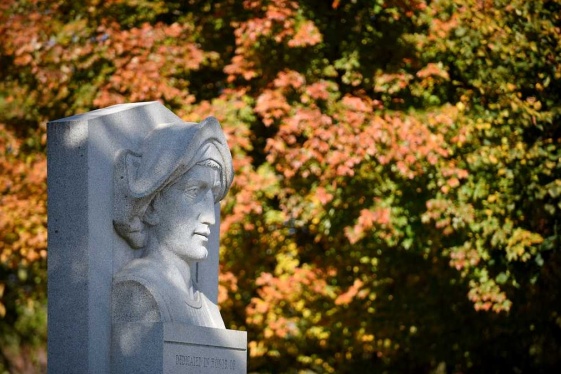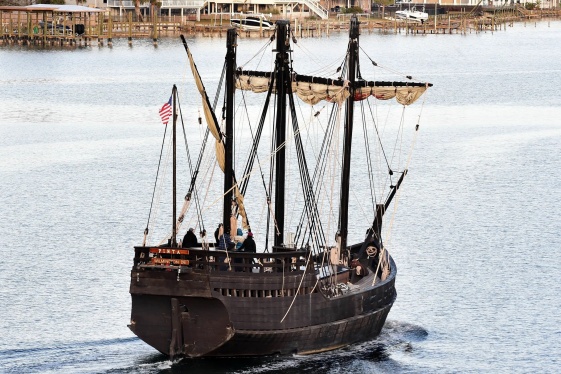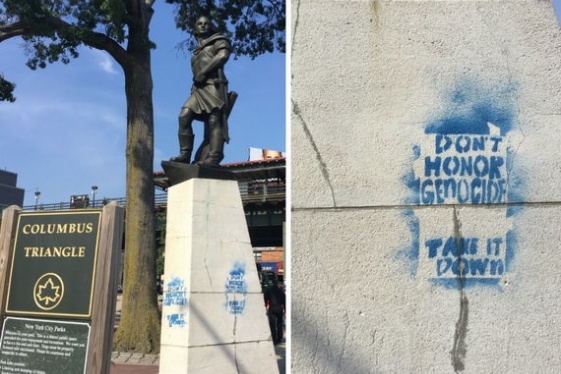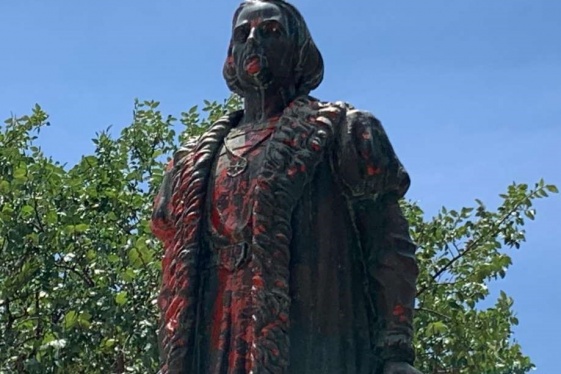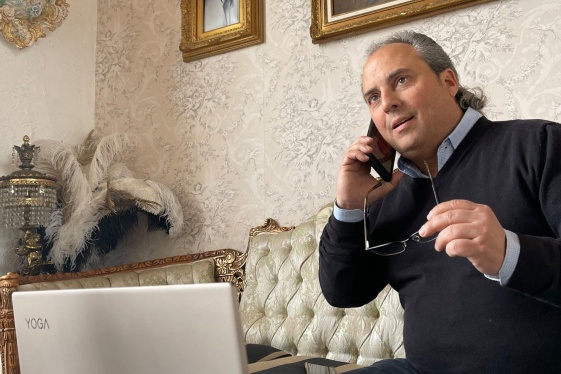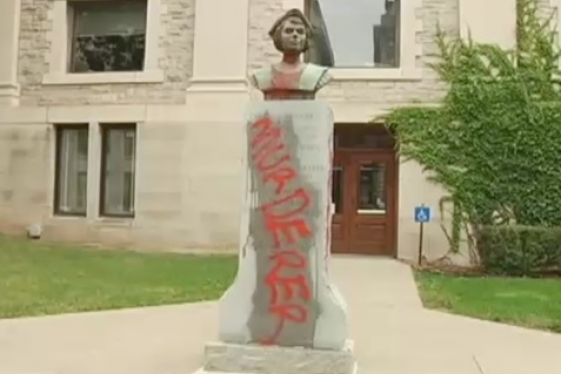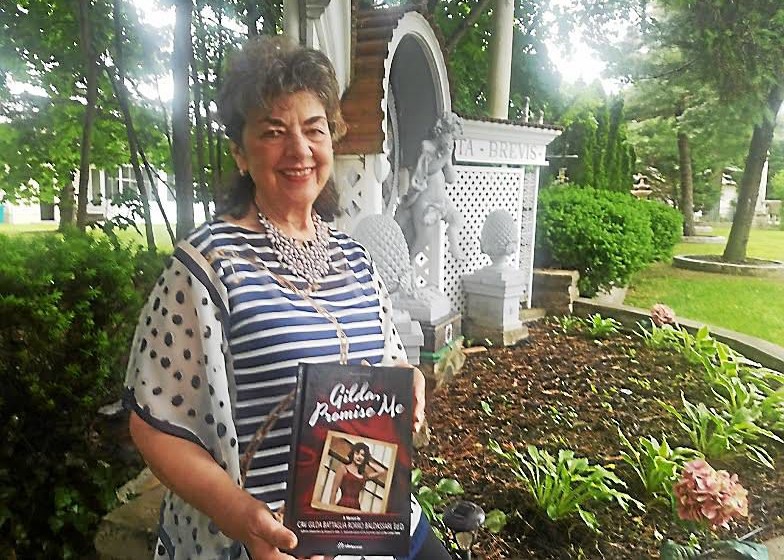

BY: Cav. Dr. Gilda Battaglia Rorro Baldassari
Many people perform great deeds, but few change the course of world history. Christopher Columbus was among those who did, and the impact of his feat continues to be felt throughout Americas. It is therefore disconcerting that the extraordinary feats of this iconic figure are being questioned and discredited to the point of cancelling the annual national holiday in his honor.
Before embarking on such a course, we should be mindful of the significant indisputable facts regarding Columbus' navigational contributions. The Admiral of the Open Seas first voyage, lasting five weeks on unchartered waters, was a tumultuous crossing. Sailing into the unknown, he confronted a mutinous crew.
He discovered the course of the Trade Winds -- knowledge which is still indispensable for mariners. He determined solar eclipses and successfully charted four passages to the New World, opening an age of European migration. His voyages advanced planetary exploration, mapping, circumnavigation, colonization and trade.
Columbus' encounter with the New World changed the course of history by forging a bridge between the Old World and the New. The initial impact on indigenous tribes of mass European expansion brought inevitable conflicts and abuses, as did Western Expansion through Manifest Destiny in this country. Yet in the lands Columbus encountered, a new peoplehood emerged which has flourished over the centuries benefitting from the introduction of European technology and other advancements.
He was a man of his time, living during the harsh Spanish Inquisition. He was extremely pious, being a Third Order Franciscan, and considered his greatest achievement to be the spreading of the Christian religion in the New World. The fathers of the First Vatican Council in the 1870s suggested his canonization.
Whether or not the Admiral became a saint, Columbus was the first immigrant in that new territory. His landing on San Salvador was a momentous event, which authorities say is comparable only to landing a man on the moon.
There is an outcome of Columbus' voyages on which there can be universal approval and appreciation. The science of history points to how Columbus introduced the Europeans and subsequently, Africans, to such items as: tomatoes, pineapples, sweet potatoes, corn, chocolate, tobacco, and coffee. Could we imagine life without them?
His extraordinary accomplishment with all its consequences, positive and negative, should be preserved, studied, and discussed. Its impact today is as relevant as it was in 1492. Let us explore the life of Columbus through his own writings, e.g., the Book of Prophesies and the Final Voyage, and a plethora of other authors who provide objective accounts.
The NEA could serve as the educational catalyst for schools and communities to explore materials developed on this topic by the National Italian American Federation, the Conference of Presidents, and the New Jersey Italian Heritage Commission.
Congress and President Franklin Delano Roosevelt proclaimed 12 October a federal holiday as a celebration of Italian American heritage. The event remains a great source of pride to the nation's 25 million Italian Americans. By dismissing Columbus Day, do we next delete the names of the 54 communities, the major river, an Ivy-League university, and myriad statuary in the United States which bear his name? What might then happen to the places in Portugal, France, Italy, Spain, and the South American country named for the navigator?
Instead of succumbing to the elimination of Columbus Day because of our failure and unwillingness to understand the times and customs of the past, may the NEA exercise its leadership and overturn the July 2019 resolution to eliminate Columbus Day. Rather, let it highlight the inextricable link between Columbus' encounter with various tribes in the New World and commemorate Columbus/Indigenous Peoples' Day. Four states have done this to date. In so doing, we strengthen the connection between our immigrant past and our American future.
You may be interested
-
A wreath for Columbus and three crowns for t...
The Columbus Day Committee of Atlantic City along with the Bonnie Blue Foundation annually...
-
'Atmosphere of anger' in Glen Rock and beyond...
The debate over turning Columbus Day into Indigenous Peoples’ Day has people riled up on b...
-
'Celebrating the Italian Woman' is 2013 theme
The 2013 Columbus Italian Festival will celebrate and showcase all things Italian during i...
-
'Columbus' ship Pinta docks in Fort Walton Be...
A little bit of living history will be on display in Fort Walton Beach now through Jan. 2....
-
'Don't Honor Genocide' Graffiti Painted on Co...
The statue of explorer Christopher Columbus that looms over Astoria Boulevard was vandaliz...
-
'Exactly what we were trying to avoid': Chris...
Red paint was splattered across the Christopher Columbus statue in San Antonio's Columbus...
-
'It is time to return them': Italian-American...
The Joint Civic Committee of Italian Americans (JCCIA) said Mayor Lightfoot and the City o...
-
'Murderer': Another Upstate NY Christopher Co...
With just a month left before Columbus Day, another prominent statue of Christopher Columb...




